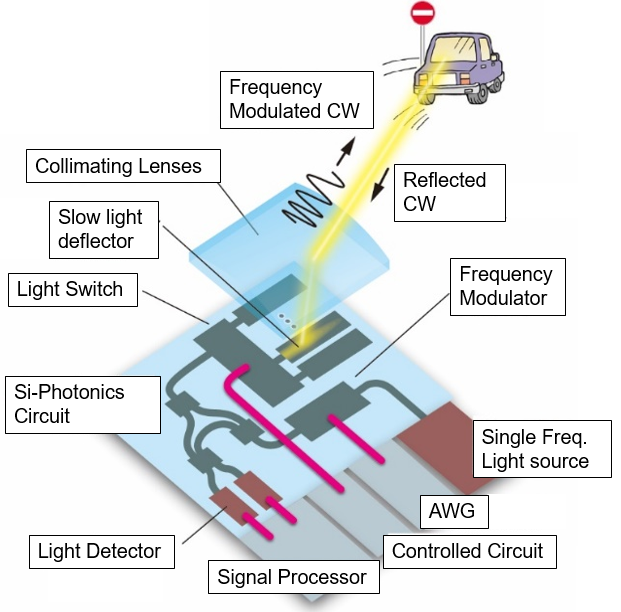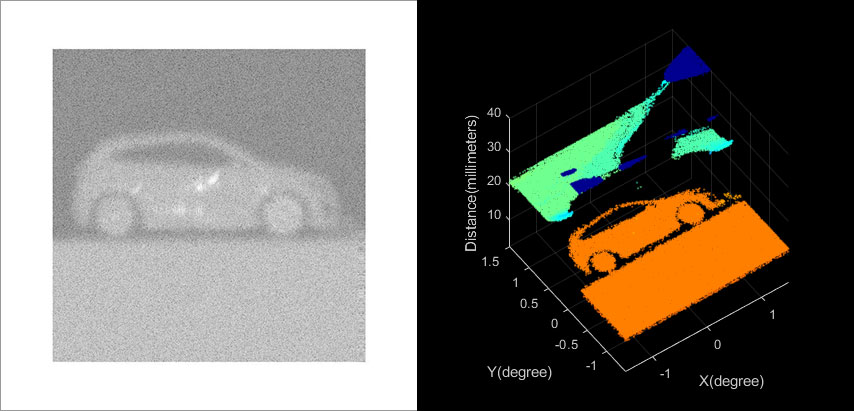The Light Detection and Ranging (LiDAR) system has been under development in this laboratory focusing on an environmental sensor for a self-driving mobilities, such as in cars and drones. There are currently various kind of LiDAR sensor in the market and development, and in order to make used of the Silicon Photonics and Photonics Crystal technology [1-3] our research group is specialized for, we plan to design a solid-state Frequency Modulated Continuous Wave (FMCW) operated on a photonic crystal chip and slow light steering unit, all integrated on Silicon Photonics platform.

The compact chip size all-in-one LiDAR module are expected to have an incomparable advantage over the conventional mechanical LiDAR in module size, weight, and energy consumption. Another merit for this silicon photonics chip is the fabrication process will lower the production cost, and raise the compatibility with mass production, which encourage more accessibility to the LiDAR technology.
The system is currently under the testing phase with the operated frequency on 1550 nm 10 dBm light source and external electrical modulation of 200 kHz for light signal chirping. The 3D point cloud scanning can be achieved with the best SNR of 18 at 1.5 meters. The AI and machine learning for object detection is also underdevelopment and expected be applied to the system in the near future.

7F, S9-1, 2-12-1 O-okayama, Meguro-ku Tokyo 152-8552, Japan +81-3-5734-2555 ee.e titechnishiyama
Nishiyama lab. Student's room : South Bldg. 9 #701, #706, #707 |
Measurement room : South Bldg. 9 #604, #502, #201 |
Clean room : South Bldg. 9 #202, B1F Exposure house |
Research Laboratory of Ultra-High Speed Electronics